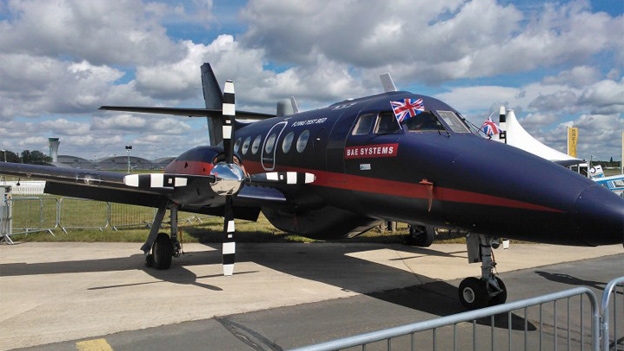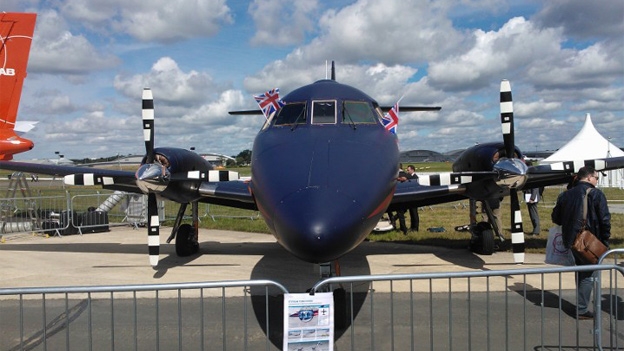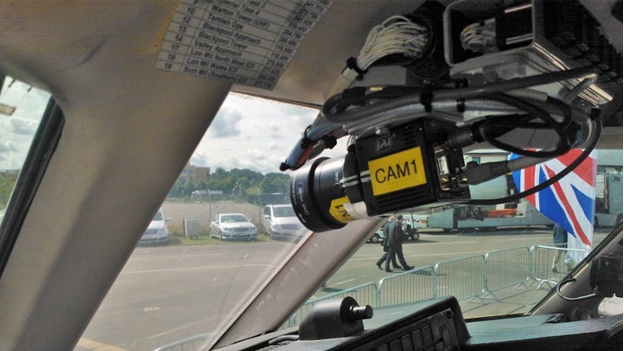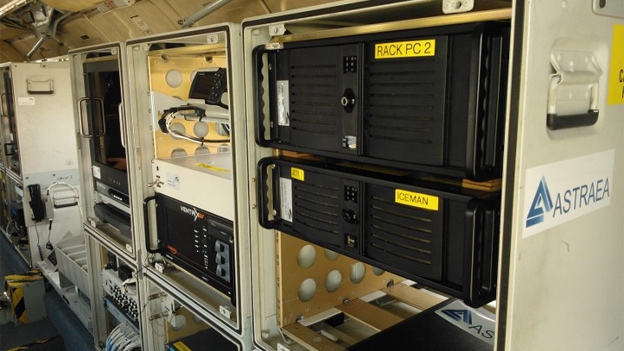BAE Systems unveils ASTRAEA unmanned aircraft
Creating aircraft that can think for themselves






The term 'UAV' is usually associated with military drones, but now with ASTRAEA, BAE Systems is hoping to bring unmanned flight to larger aircraft
BAE Systems has announced at the Farnborough Airshow 2012 that it will be conducting a series of world first test flights of their ASTRAEA-developed intelligent UAS software using a conventional aircraft.
ASTRAEA is a consortium of companies working together to create an intelligent autopilot that, by using a series of cameras located around the plane, will not only be able to perform emergency landings but accurately avoid cloud movements.
With its Sense & Avoid technology the aircraft can locate, identify and then safely fly around other aircraft all without the need for a pilot.
The ASTRAEA program is a huge leap forward in automated aviation that BAE hopes will be deployed with search and rescue aircraft, freight aircraft and be used to upgrade current autopilots.
Instead of building an entirely new plane from the ground up BAE has effectively modified a conventional Jetstream 31 plane and refitted it with all the technologies that have so far been developed through ASTRAEA.
Speaking at the press briefing was Lambert Dopping-Hepenstal, Engineering Director Systems and Strategy, Military Air and Information at BAE and ASTRAEA Programme Director: :
Get all the latest news, reviews, deals and buying guides on gorgeous tech, home and active products from the T3 experts
“I think it is the dawn of a new era in aviation, it's opening up a new market, in general it's opening up for us to be able to do things that we haven't been able to do before.”
“It's looking at a whole new branch of aircraft. Current search and rescue aircraft are limited by human endurance, however with a UAV there's no reason why they can't stay up for weeks.”
While the technology has certainly been proven to be in some cases more accurate than human pilots Hepenstal was keen to stress that this would not be a replacement for human pilots in civil aviation.
“We're not talking about unmanned passenger aircraft you're not going to be going on your holidays without a pilot.”
Thomas Tamblyn studied journalism at the University of Westminster, where he was a contributing presenter at the award-winning Smoke Radio station. He then moved to T3.com as a Staff Writer where he proceeded to write news, reviews and features on topics such as phones, electric vehicles, laptops, gaming, streaming services, headphones, tablets future tech and wearables.
